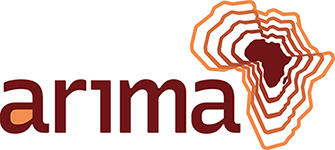 |
Milliam Maxime Zekeng Ndadji ; Daniela Marionne Nguedia Momo ; Franck Bruno Tonle Noumbo ; Maurice Tchoupé Tchendji - Les modèles LSAWfP non récursifs sont des workflows structurés
arima:11183 - Revue Africaine de Recherche en Informatique et Mathématiques Appliquées, 5 juillet 2023, Volume 38 - Numéro spécial CARI 2022 - 2023 - https://doi.org/10.46298/arima.11183- 1 Université de Dschang
- 2 Faculté des Sciences - Université de Dschang [Cameroun]
- 3 Université de Dschang [Cameroun] = University of Dschang [Cameroon] [UDs]
- 4 International Centre of Insect Physiology and Ecology
Éditeurs: Mathieu Roche, Nabil Gmati, Amel Ben Abda, Marcellin Nkenlifack
[en]
Workflow languages are a key component of the Business Process Management (BPM) discipline: they are used to model business processes in order to facilitate their automatic management by means of BPM systems. There are numerous workflow languages addressing various issues (expressiveness, formal analysis, etc.). In the last decade, some workflow languages based on context-free grammars (having then formal semantics) and offering new perspectives to process modelling, have emerged: LSAWfP (a Language for the Specification of Administrative Workflow Processes) is one of them. LSAWfP has many advantages over other existing languages, but it is its expressiveness (which has been very little addressed in previous works) that is studied in this paper. Indeed, the work in this paper aims to demonstrate that any non-recursive LSAWfP model is a structured workflow. Knowing that the majority of commercial BPM systems only implement structured workflows, the result of this study establishes that, although LSAWfP is still much more theoretical, it is a language with commercial potential.
[fr]
Les langages de workflow occupent une place importante dans la discipline du Business Process Management (BPM) : ils sont utilisés pour modéliser les processus opérationnels afin de faciliter leur gestion automatique à l'aide de systèmes BPM. Il existe de nombreux langages de workflow qui traitent de divers aspects (expressivité, analyse formelle, etc.). Au cours de la dernière décennie, certains langages de workflow basés sur des grammaires algébriques (ayant alors une sémantique formelle) et offrant de nouvelles perspectives à la modélisation des processus ont vu le jour : LSAWfP (a Language for the Specification of Administrative Workflow Processes) est l'un d'entre eux. LSAWfP présente de nombreux avantages par rapport aux langages existants, mais c'est son expressivité (qui a été très peu abordée dans les travaux antérieurs) qui est étudiée dans le présent document. En effet, les travaux présentés dans ce document visent à démontrer que tout modèle LSAWfP non récursif est un workflow structuré. Sachant que la majorité des systèmes BPM commerciaux ne gèrent que des workflows structurés, le résultat de cette étude montre que, bien que LSAWfP soit encore très théorique, il est un langage au potentiel économique certain.
